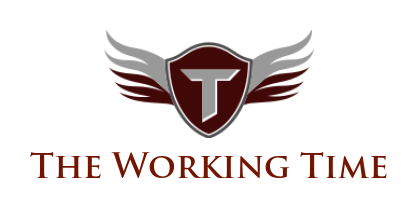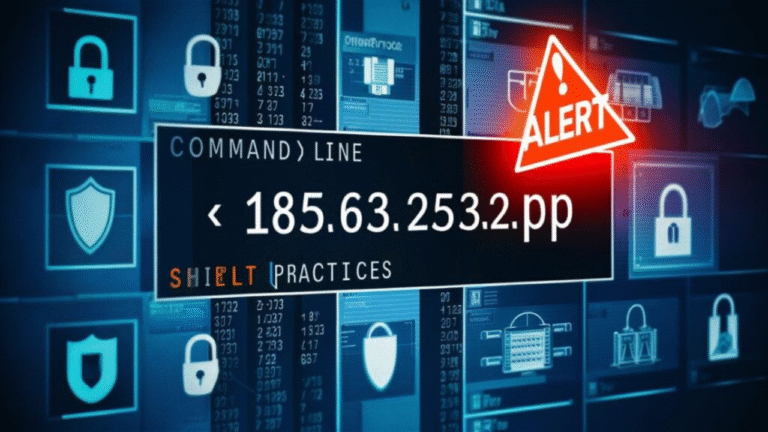Ever stumbled across a weird string like 185.63.253.2pp in your server logs or firewall alerts and wondered what on Earth it means? Yeah, you’re not alone. It’s not a standard IP, that’s for sure, but it pops up from time to time in odd places — especially in suspicious contexts.
Understanding IP Addresses
Before diving into the weirdness of “185.63.253.2pp,” let’s brush up on the basics.
IPv4 vs IPv6
IP addresses come in two flavors: IPv4 and IPv6.
-
IPv4 looks like this: 192.168.0.1 — four sets of numbers between 0 and 255.
-
IPv6 is more modern and longer: 2001:0db8:85a3:0000:0000:8a2e:0370:7334.
“185.63.253.2” is clearly an IPv4 address, but the “pp” on the end? That’s not part of any IP standard.
Public vs Private IPs
Some IPs are public — reachable over the internet. Others are private, used internally (like 192.168.x.x). The IP 185.63.253.2 is a public IP, which adds a bit of intrigue.
Breaking Down 185.63.253.2pp
Is This a Valid IP Address?
On its own, 185.63.253.2 is a legitimate IPv4 address. But 185.63.253.2pp is not. The “pp” tacked on the end makes it invalid in standard IP address syntax.
What Does “pp” Stand For?
Good question. The “pp” could mean a few things:
-
Proxy Protocol? (Unlikely, but a theory.)
-
Personal Page? (Used in URLs before.)
-
Mistyped Port? (Maybe someone meant
:ppinstead of:8080or similar.)
Chances are, it’s a typo, an error in parsing, or someone intentionally disguising a link or IP.
Possible Sources of 185.63.253.2pp
Typos or Misconfigurations
One of the most common explanations is simple human error. Maybe someone tried entering a URL or IP and hit “pp” by accident.
Proxy or VPN Artifacts
VPN services and proxy tools sometimes obscure or alter IP displays, either for privacy or obfuscation. “pp” might be an artifact left from a plugin or software appending unnecessary suffixes.
Malicious or Suspicious Indicators
Sometimes, attackers deliberately mangle addresses to bypass filters or confuse admins. In this case, “185.63.253.2pp” could be a spoofed IP or disguised phishing link.
Security Concerns With Unknown IPs
Phishing and Malware Risks
If you see 185.63.253.2pp in an email, URL, or redirected domain — don’t click. It could be a masking attempt to lure you into malware territory.
How Hackers Mask IPs
Cybercriminals use tricks like:
-
Adding junk characters to IPs
-
Using Unicode or encoded characters
-
Embedding IPs in fake domains
Seeing “pp” in this context could be one of those red flags.
How to Investigate 185.63.253.2pp
Want to dig into this mystery IP? Here’s how.
WHOIS Lookup
Use a WHOIS lookup tool on 185.63.253.2 (without the “pp”) to find who owns the IP, what company it’s registered to, and where it’s located.
IP Geolocation Tools
Sites like ipinfo.io or iplocation.net can help you pinpoint the geographic origin of the IP. This can be crucial if you’re tracing network threats.
Reverse DNS Lookup
This tells you what domain, if any, is associated with the IP. It might clue you in on whether this IP has been used by spammers, bots, or data miners.
Common Errors and Misunderstandings
Misinterpreting IP Notation
People often confuse IP addresses with domains or ports. So 185.63.253.2pp could be a poorly formatted attempt to denote a port (like 185.63.253.2:443).
Overlooking “.pp” Formatting
“.pp” is also a ccTLD (country code top-level domain) for Papua New Guinea, though it’s not widely used. So the string could be referencing a domain, not an IP at all.
185.63.253.2pp in Network Logs
What It Could Mean for Your System
If you’re spotting 185.63.253.2pp in your log files, it’s likely from:
-
Scrapers
-
Bots
-
Mistyped user agents
-
Broken APIs
Should You Be Worried?
If it’s only showing occasionally, it’s probably harmless. But repeated hits from similar malformed IPs could signal botnet scanning or attempts to probe your system.
Steps to Secure Your Network
Blocking Suspicious IPs
Use your firewall or security software to block known bad IPs, especially if they’re acting shady.
Setting Up IP Filtering Rules
Home Users
-
Enable advanced settings on your router
-
Block specific IPs manually
-
Use DNS-based filtering tools
Small Businesses
-
Deploy an IDS/IPS
-
Use centralized logging
-
Enable geo-blocking if appropriate
When to Contact a Professional
If you’re seeing strange IPs like 185.63.253.2pp show up frequently or you’re experiencing slowdowns, crashes, or login attempts — call in a security expert. It could be the start of something bigger.
Conclusion
So what’s the deal with 185.63.253.2pp? It’s not a valid IP address, but it is a curious string that could be anything from a typo to a sign of deeper mischief. If you spot it, don’t panic — but do investigate. A little vigilance goes a long way when you’re protecting your systems.
FAQs
1. Is 185.63.253.2pp a real IP address?
No, it’s not valid in standard IP formats. The “pp” suffix is non-standard and likely an error or disguise.
2. Should I be worried if I see 185.63.253.2pp in my logs?
Not necessarily. But it’s worth checking — especially if it shows up repeatedly or alongside other unusual activity.
3. Can “.pp” be a top-level domain?
Yes, it stands for Papua New Guinea. But it’s rarely used in the wild.
4. How do I block 185.63.253.2pp?
You can’t block “185.63.253.2pp” directly, but you can block 185.63.253.2 using firewall rules.
5. Is it a virus or malware?
Not by itself. But if it’s part of a suspicious link or behavior pattern, it could be connected to a larger threat.

